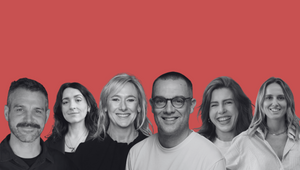
Data and Intuition: How Strategy Can Keep Hold of the Human Touch

A lot has been written about the demise of strategy over the last decade. As an industry, we’re inundated with opinion pieces that bemoan the fact planners don’t talk to real people anymore, relying instead on the latest dashboards to tell them what to do. But unlike many of my colleagues, I don’t think that strategy is a discipline in crisis, nor do I believe that there’s a battle between man and machine.
This clip from the 1966 BBC Archive asking children to imagine life in the year 2000 is a great reminder of how long we’ve been battling with this topic. One girl paints a particularly dystopian image of “all machines everywhere, everyone doing everything for you”. Whilst we’re not quite there yet, advancements in technology over the past decade have accelerated exponentially and there has been significant shifts to the way strategists, and creatives, approach their work.
As is often the case, I think Martin Wiegel put it best when he described strategy as a ‘discipline that’s both external and internal facing, analytical and creative…consumer and business focused, research and intuition applying’. Strategy clearly needs a combination of data analysis and human insight. So, for me the more interesting question is not ‘how do you ensure your strategy doesn’t lose the human touch?’ but ‘how do you find the right balance between data and intuition?’
I believe you start at the end. Define exactly what it is you need to achieve. Setting objectives is a step that’s worryingly often missed or rushed by strategists but it’s central to distinguishing between the metrics we measure and those that actually matter. At We Are Social, we have a vision to be the smartest social behaviour and culture experts in the world. We combine a mixture of quantitative and qualitative methodologies that range from audience profiling, ethnographic research, trend analysis, cultural mapping and conversation and sentiment analysis to understand where our clients are now and to help us define how to get to where they need to be.
The next stage involves that elusive search for an insight. Mark Pollard’s maxim that ‘an insight is not a number, it’s why a number exists’ is a great reminder that data must always be tempered by gut feel. An unspoken human truth will never be a simple articulation of fact. The greatest insights I’ve come across in my career have always had this special combination of magic and maths, as well as an ability to stretch across multiple executions and in particularly successful cases, multiple decades, like Snickers’ ‘you’re not you when you’re hungry’. They reveal something we know about ourselves unconsciously but bring that knowledge out into the open.

To arrive at an insight that transforms the way we see the world and unlocks a new opportunity for brands therefore requires a combination of analytics and real world observation. Adam Ferrier has gone into fantastic detail on the benefits and limitations of focus groups and other forms of in-person research so I’m not going to dwell on this point in too much depth but it's undeniably important to ask real people what they think, feel and do whilst being aware that claimed data is notoriously unreliable. Ultimately, any qualitative research is only as insightful as the questions themselves so crafting a methodology that allows respondents the freedom to go off-script is critical.
Once you’ve formed an insight, you can move to the next (and my favourite) stage of any strategic process. Access your inner toddler. Ask why…why…and why again? This may seem like a pointless exercise at first but I’m a big believer that the first answer is not generally the best, it’s just the most obvious. If you think you’ve got to an interesting place, then ask someone else what they think. It doesn’t have to be another strategist, ideally it would be someone completely outside of our industry. I often annoy my husband by asking him to check my homework. Or my Dad. Or if I’m feeling extra adventurous my ride-share driver. It’s completely natural to seek validation but the most helpful way to approach these feedback sessions is to ask what you’re missing. What isn’t working? Where is the logic getting stuck? What doesn’t ring true? Linger there. Like with most forms of exercise, development comes from resistance.
Finally, there’s no substitution for real-world experience. When I first decided to make the move from account service to strategy, I reached out to Jon Steel for advice. I’d read Truth, Lies and Advertising and wanted to know what else he could recommend to help me feel more confident. Not only did he reply, he sent me a very thoughtful message explaining his belief that ‘the best books about advertising are not about advertising. They are about life - about the human and cultural context into which we weave our brand stories’. It’s still the best piece of advice on being a strategist I’ve ever received and a reminder to always focus on the wider context. After all, advertising doesn’t exist in a vacuum. What we eat, buy, watch and play is formed by a lifetime of experiences.
That’s why I keep a note on my desk featuring another Steel quote, ‘be interested and interesting’. If you want to keep a tight hold of the ‘human touch’, you need a rapacious appetite for experiences. That doesn’t mean all strategists need to be extroverts but you do need to be interested in people and how and why they make certain decisions. It’s my belief that curiosity is still the single most important quality for any planner.
Caitlin's career has spanned London, Paris, Melbourne and Sydney whilst working at DDB Group Australia, WPP and We Are Social. As Head of Strategy, her role is to come up with innovative solutions to business problems for industry titans like Samsung, TikTok and PwC.















